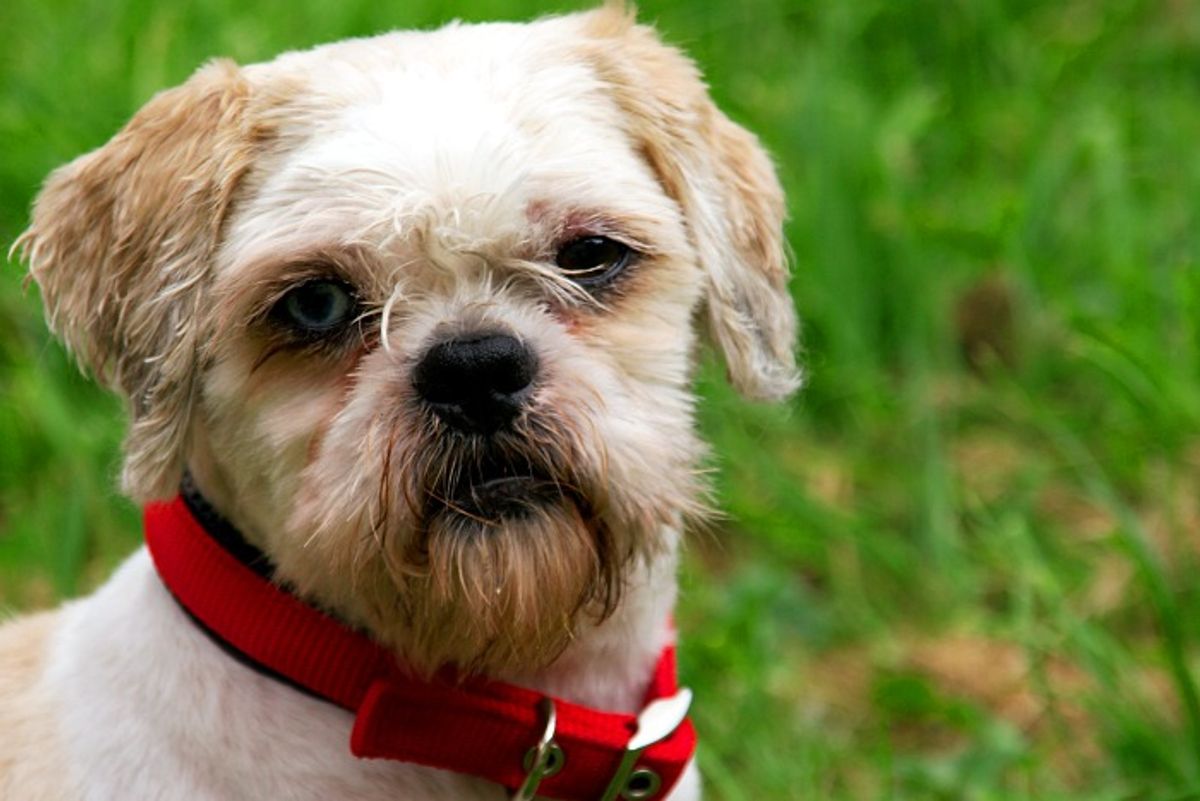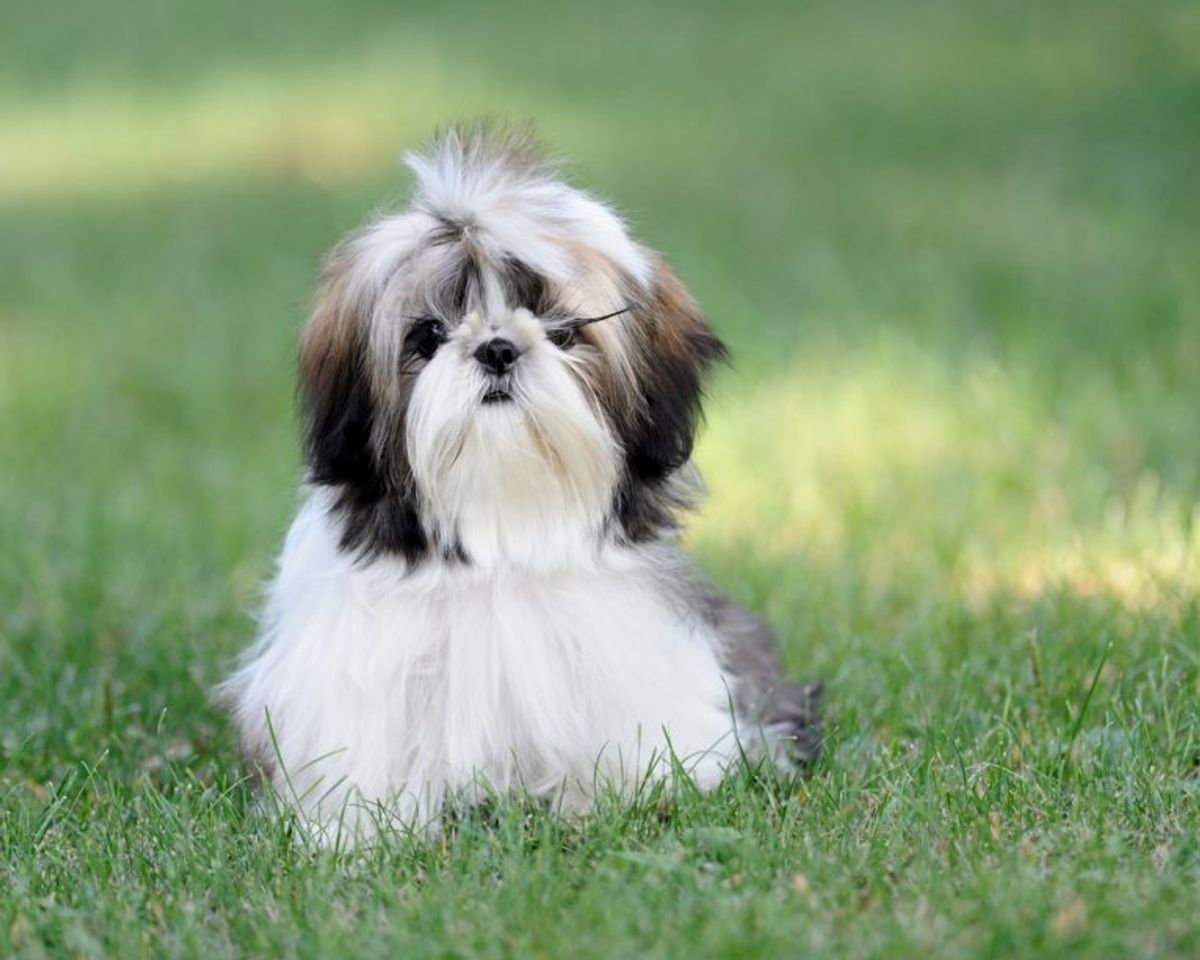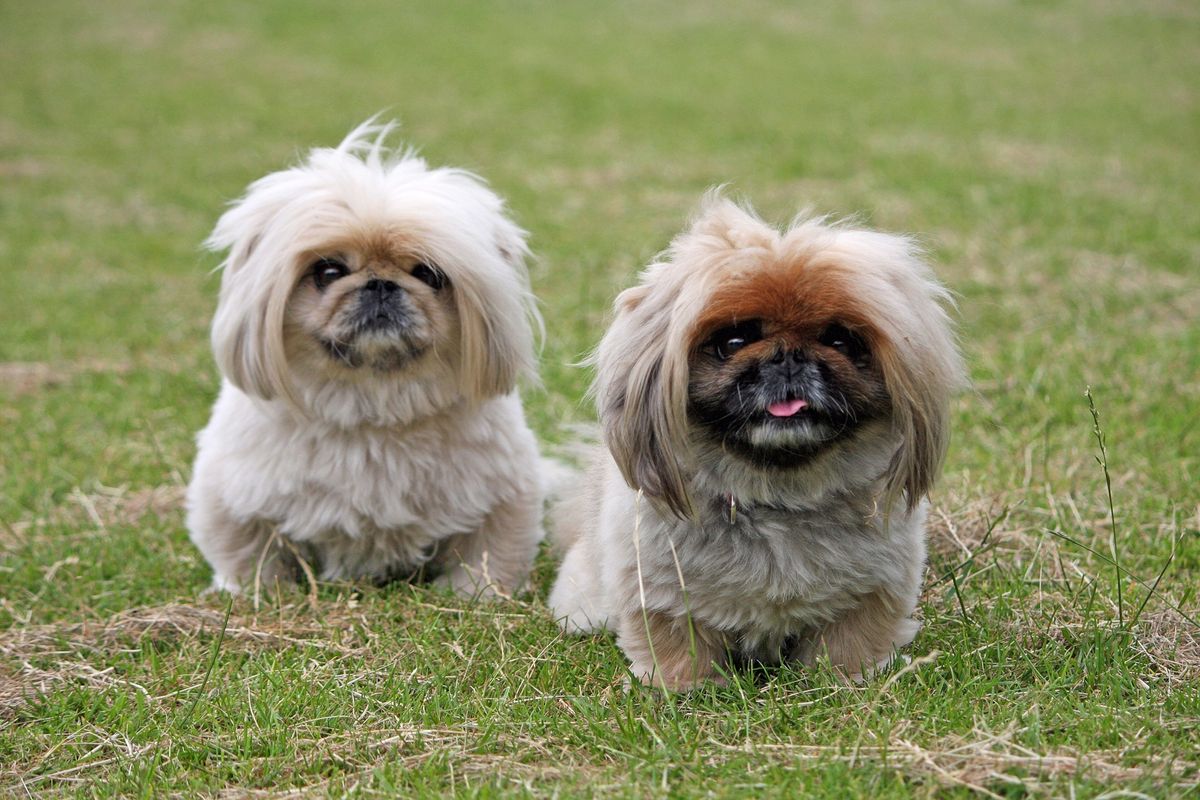When it comes to ensuring the health and happiness of our Shih Tzus, proper nutrition is crucial. However, the world of canine diets is rife with myths and misconceptions, particularly concerning what constitutes a healthy diet for a Shih Tzu. This article aims to debunk the most common dietary myths surrounding Shih Tzu nutrition, providing pet owners with science-backed information to make informed decisions about their furry friends’ diets.
Key Takeaways
- Grain-free diets are not inherently better for Shih Tzus, and carbohydrates from grains can be a healthy part of their diet.
- High-protein diets are not always suitable for small breeds like Shih Tzus; balance and quality of protein are more important.
- Not all human foods are safe for Shih Tzus; understanding which are harmful and which can be safely given as treats is essential.
- Dietary supplements are not always necessary for Shih Tzus and should be chosen carefully based on individual health needs.
- Overfeeding and obesity can have significant health implications for Shih Tzus, emphasizing the need for a balanced diet and portion control.
The Grain-Free Paradox: Understanding Carbohydrates in Shih Tzu Diets

The Role of Grains in Canine Nutrition
Grains have been a staple in canine diets for many years, providing a source of essential nutrients that contribute to overall health. While some dogs may have sensitivities to grains, for the majority, grains offer a balanced source of energy, dietary fiber, and important vitamins and minerals. Grains can play a crucial role in maintaining a healthy digestive system for dogs, including Shih Tzus.
Grains are not inherently bad for dogs; they can be a beneficial part of a balanced diet, especially when chosen correctly and fed in appropriate amounts.
It’s important to understand the nutritional value of grains in dog food. Here’s a quick overview of what grains can offer:
- Protein: Some grains contain significant amounts of protein which can complement the protein sourced from meat.
- Fiber: Dietary fiber from grains is vital for digestive health.
- Vitamins: Grains are often rich in B-vitamins which are essential for energy metabolism.
- Minerals: They provide minerals like phosphorus and magnesium, important for bone health.
However, it’s crucial to identify which grains are beneficial and how they fit into a Shih Tzu’s diet. Not all grains are created equal, and the quality of the grain matters just as much as the quantity.
Debunking the Grain-Free Trend
The grain-free trend in pet nutrition has gained popularity with claims of being a healthier option for dogs, including Shih Tzus. However, it’s essential to understand that grains are not the enemy. Grains can be a valuable source of nutrients for dogs, providing vitamins, minerals, and fiber that contribute to a balanced diet.
While some dogs may have grain sensitivities, this is not the norm. The decision to switch to a grain-free diet should be based on individual health needs rather than a general trend. Here’s a comparison of grain-free and grain-inclusive diets:
- Grain-Free Diets: Often use alternative carbohydrates like sweet potatoes or peas.
- Grain-Inclusive Diets: Include grains sourced from non-GMO crops, beneficial for dogs without grain sensitivities.
It’s important to choose a diet that aligns with your Shih Tzu’s specific health requirements, rather than following a one-size-fits-all approach.
Before making any significant changes to your Shih Tzu’s diet, consult with a veterinarian. They can provide guidance based on your pet’s unique health profile and nutritional needs. Remember, a well-informed decision can lead to a happier and healthier pet.
Identifying Healthy Carbohydrate Sources for Shih Tzus
When it comes to feeding your Shih Tzu, selecting the right carbohydrates is crucial for their energy levels and overall health. Complex carbohydrates are generally preferred over simple sugars because they provide a more sustained energy release and support better digestion. Good sources of complex carbohydrates for Shih Tzus include brown rice, barley, and oats.
It’s important to recognize that some Shih Tzus may have sensitivities to certain grains. In these cases, grain-free options that utilize nutrient-dense carbohydrate sources like sweet potato and pumpkin can be beneficial. These alternatives not only support digestion but also contribute to immune system health.
While grains are not a dietary villain, it’s essential to choose high-quality, digestible grains or grain-free options that align with your Shih Tzu’s specific needs.
Here’s a list of healthy carbohydrate sources for Shih Tzus:
- Brown rice: Provides vitamins, minerals, and fiber.
- Barley: Offers a good balance of nutrients and is less likely to cause allergies.
- Oats: A great source of soluble fiber, which can aid in digestion.
- Sweet potatoes: Rich in antioxidants and vitamins, and a good grain-free option.
- Pumpkin: Another excellent grain-free choice that helps with digestion.
Protein Myths: Separating Fact from Fiction for Shih Tzu Health

The Myth of High-Protein Diets for Small Breeds
The belief that small breed dogs, like Shih Tzus, require high-protein diets is a common misconception. While protein is an essential component of any canine diet, the quantity and quality of protein should be tailored to the specific needs of the breed and individual dog. Excessive protein intake can lead to health issues, particularly in breeds with predispositions to certain conditions.
- Quality over quantity: It’s not just about the amount of protein, but the source and digestibility.
- Breed-specific needs: Small breeds have different metabolic rates and dietary requirements.
- Health considerations: Overloading on protein can strain the kidneys, especially in dogs with pre-existing conditions.
It’s crucial to strike a balance between providing enough protein for muscle maintenance and avoiding excessive amounts that can overburden the kidneys. This balance ensures that your Shih Tzu receives the nutrition they need without the risk of unnecessary health complications.
Veterinarians often recommend diets that include whole grains and quality protein sources, such as real chicken, to build strong muscles without overloading the system. It’s important to consult with a professional to determine the appropriate protein level for your Shih Tzu, taking into account their age, activity level, and overall health.
Balancing Protein Intake for Optimal Shih Tzu Health
When it comes to balancing protein intake for your Shih Tzu, it’s not just about the quantity but also the quality of the protein sources. A common misconception is that more protein automatically means better health, but this is not necessarily true for small breeds like Shih Tzus. Instead, focus on providing a diet that meets their specific needs.
- Aim for high-quality protein sources such as chicken, fish, and beef.
- Avoid common fillers like corn, wheat, and beet pulp, which may not be properly digested.
- Consider the age of your Shih Tzu, as puppies may require more protein to support healthy growth.
It’s crucial to keep your Shih Tzu’s diet on track with meals that are both nutritious and appealing. For a balanced diet, dry kibble is generally preferable. To make dry food more appealing to a Shih Tzu puppy or dog that prefers wet food, consider adding low-sodium chicken broth or a spoonful of pumpkin.
Remember, while some dog foods claim to be ‘complete and balanced,’ it’s important to read the ingredients list. Not all dog foods are created equal, and some may lack the necessary nutrients for your Shih Tzu’s health. Supplements like omega-3 fatty acids can be beneficial, but they should complement, not replace, a well-rounded diet.
Understanding Protein Quality and Sources
When considering the protein in your Shih Tzu’s diet, it’s essential to focus on the quality of the protein sources. High-quality protein is rich in essential amino acids, which are vital for your pet’s health as they cannot be synthesized by the body and must be obtained through diet. These amino acids are the building blocks of proteins and play a crucial role in various bodily functions.
Protein quality varies significantly among different food sources. For Shih Tzus, it’s important to select foods that provide a complete amino acid profile. Animal-based proteins such as chicken, fish, and beef are typically considered high-quality because they contain all the essential amino acids in the right proportions. On the other hand, plant-based proteins may lack one or more essential amino acids and should be complemented with other protein sources to achieve a balanced diet.
It’s not just about the amount of protein, but the balance of amino acids that determines the nutritional value of a protein source for your Shih Tzu.
Here is a list of essential amino acids that should be present in your Shih Tzu’s diet:
- Methionine
- Arginine
- Threonine
- Tryptophan
- Histidine
- Isoleucine
- Lysine
- Leucine
- Valine
- Phenylalanine
Remember, while some dog foods, like Nature’s Recipe Grain Free Salmon, Sweet Potato, and Pumpkin, may be marketed as perfect for Shih Tzus, it’s crucial to assess the protein quality and not just the product claims.
Human Foods and Shih Tzus: What’s Safe and What’s Not

Common Human Foods That Can Harm Shih Tzus
While it’s tempting to share your snacks with your furry friend, not all human foods are safe for Shih Tzus. Some can cause serious health issues, and it’s crucial to be aware of these to protect your pet. Below is a list of common human foods that can be toxic to Shih Tzus:
- Alcohol
- Avocado
- Chocolate
- Fat Trimmings
- Fish
- Garlic
- Grapes and Raisins
Remember, this is not an exhaustive list. Always check with your vet before introducing new foods to your Shih Tzu’s diet.
If your Shih Tzu ingests any of these foods, it’s important to seek veterinary care immediately. Symptoms of food poisoning in dogs can vary, but may include vomiting, diarrhea, lethargy, and more severe signs such as seizures or difficulty breathing.
Safe Human Food Treats for Your Shih Tzu
While it’s tempting to share your meals with your furry friend, not all human foods are safe for Shih Tzus. However, there are several safe and nutritious options that can be offered as treats. Here’s a list of vet-approved human foods that can be healthy for your Shih Tzu:
- Apples (without seeds)
- Cooked rice
- Carrots (raw or cooked)
- Peanut butter (xylitol-free)
- Cooked fish (deboned)
- Cooked chicken (no bones)
- Plain popcorn (no butter or salt)
- Blueberries
Remember, treats should not make up more than 10% of your Shih Tzu’s daily caloric intake to maintain a balanced diet.
Always introduce new foods gradually and in small amounts to avoid digestive upset. If you’re unsure about a particular food, consult your veterinarian before offering it to your pet.
The Truth About Sharing Your Meals with Your Pet
While it’s tempting to share your meals with your furry friend, it’s crucial to understand that not all human foods are safe for Shih Tzus. Some ingredients can be toxic, while others may lead to long-term health issues if fed regularly. It’s important to differentiate between what is safe and what could potentially harm your pet.
Here’s a quick guide to help you make informed decisions:
- Safe: Cooked lean meats, certain fruits like blueberries, and vegetables like carrots
- Unsafe: Onions, garlic, chocolate, and foods containing xylitol
- Occasional Treats: Small amounts of cheese or cooked eggs
Remember, treats should not make up more than 10% of your Shih Tzu’s daily caloric intake to maintain a balanced diet.
When in doubt, always consult with your veterinarian before introducing new foods into your Shih Tzu’s diet. This precaution ensures that your pet stays healthy and avoids any adverse reactions.
Supplement Hype: Navigating the World of Shih Tzu Nutritional Additives

Do Shih Tzus Really Need Dietary Supplements?
When considering the health of your Shih Tzu, it’s important to understand that not all dogs require dietary supplements. A well-balanced diet typically provides the necessary nutrients for your pet. However, certain conditions or life stages may warrant additional support. For example, puppies, seniors, or dogs with specific health issues might benefit from targeted supplementation.
- Puppies: May need supplements to support growth
- Seniors: Could benefit from joint support additives
- Health Issues: Specific supplements may aid in managing conditions
While some supplements can be beneficial, it’s crucial to consult with a veterinarian before adding them to your Shih Tzu’s diet. Over-supplementation can lead to health problems, and not all products on the market are of high quality or necessary for your pet’s well-being.
Remember, supplements should never replace a complete and balanced diet. If you’re unsure about your Shih Tzu’s dietary needs, a professional assessment of your pet’s health is the best way to determine if supplements are needed. This includes considering your pet’s body condition score, blood panel, urinalysis, and any imaging results such as X-rays or ultrasounds.
The Pros and Cons of Popular Dog Supplements
When considering supplements for your Shih Tzu, it’s essential to weigh the pros and cons to ensure they align with your pet’s specific nutritional needs. Supplements can range from multivitamins to joint support formulas, each with its own set of benefits and potential drawbacks.
Pros of popular dog supplements often include a high percentage of animal ingredients, providing a strong source of protein, vitamins, and minerals. They may also contain essential fatty acids like DHA and EPA, which support immune function, healthy skin, and a shiny coat. Additionally, many supplements feature prebiotics and probiotics to aid in digestive health.
However, there are cons to consider. Some supplements may contain grains or other ingredients that certain dogs could be sensitive to. The taste may not be appealing to all pets, and the cost can be higher than standard dog food options. It’s also important to note that not all supplements are created equal; some may have a strong odor or include non-GMO grains, which might not suit all Shih Tzus.
While supplements can be beneficial, they should not replace a balanced diet. It’s crucial to consult with a veterinarian to determine if your Shih Tzu requires supplements and, if so, which ones are most appropriate for their health.
How to Choose the Right Supplements for Your Shih Tzu
Choosing the right supplements for your Shih Tzu can be a crucial part of their diet, especially if their current food is lacking in certain nutrients. Always consult with your veterinarian before adding any supplements to your pet’s diet to ensure they are necessary and appropriate for your Shih Tzu’s specific health needs.
When evaluating supplements, consider the following points:
- Quality and Purity: Look for supplements that have been tested for quality and purity. Avoid those with unnecessary fillers or artificial additives.
- Specific Needs: Tailor the supplement to your Shih Tzu’s individual health concerns, such as joint support, digestive health, or skin and coat improvement.
- Age and Size Appropriate: Ensure the supplement is suitable for your Shih Tzu’s life stage and size, as puppies, adults, and seniors have different nutritional requirements.
It’s important to strike a balance between your Shih Tzu’s diet and supplemental needs. Over-supplementation can be just as harmful as a deficiency.
Lastly, keep a close eye on your Shih Tzu’s response to any new supplement. Changes in behavior, appetite, or physical condition can indicate whether the supplement is beneficial or if adjustments are needed.
Obesity and Overfeeding: Addressing Weight Management in Shih Tzus

The Impact of Overfeeding on Shih Tzu Health
Overfeeding a Shih Tzu can lead to a range of health issues, from obesity to more complex metabolic disorders. Excessive calorie intake, not balanced with adequate exercise, is a primary cause of weight gain in these small dogs. Obesity in Shih Tzus can lead to joint problems, diabetes, and respiratory difficulties, among other concerns.
It’s crucial to understand that a Shih Tzu’s appetite may not accurately reflect their nutritional needs. A common misconception is that a Shih Tzu is always hungry, which can lead to overfeeding. However, many dogs will eat simply because food is available, not necessarily because they need it.
Establishing a feeding routine and sticking to appropriate portion sizes are essential steps in preventing overfeeding. It’s also important to assess the nutritional value of the food being offered to ensure it meets your Shih Tzu’s dietary requirements without contributing to unnecessary weight gain.
To maintain a healthy weight, consider the following factors:
- Age and activity level
- Current health status
- Caloric content of the food
By monitoring these aspects and adjusting your Shih Tzu’s diet accordingly, you can help safeguard their health and well-being.
Recognizing the Signs of Obesity in Shih Tzus
Identifying obesity in Shih Tzus is crucial for preventing health complications. Vets consider a dog overweight if they weigh more than 15% above their ideal body weight and obese when their weight exceeds 30% of their ideal body weight. Monitoring your Shih Tzu’s weight regularly can help catch weight gain early.
To determine if your Shih Tzu may be overweight, observe these signs:
- Excess body fat, especially around the abdomen
- Difficulty in feeling the ribs or spine due to fat coverage
- Lack of a visible waistline when viewed from above
- Reluctance to exercise or easily becoming tired during activity
It’s important to recognize that what might be a small amount of excess weight for a larger breed can be significant for smaller breeds like Shih Tzus.
If you notice any of these signs, consult your veterinarian for a professional assessment and guidance on achieving a healthy weight for your pet.
Creating a Balanced Diet for Weight Control
Creating a balanced diet for your Shih Tzu is crucial in managing their weight and overall health. A well-structured feeding plan should include measured portions and scheduled meal times to prevent overfeeding. It’s important to account for all sources of calories, including treats and chews, which can add significant calories and contribute to weight gain.
When formulating your Shih Tzu’s diet, focus on a balance of nutrients that supports their health without leading to excess weight. This includes a mix of proteins, carbohydrates, and fats, as well as essential vitamins and minerals.
Remember that every Shih Tzu is unique, and their dietary needs can vary based on age, activity level, and health status. Consulting with a veterinarian can help tailor a diet plan that’s right for your pet. Here’s a simple guideline to get started:
- Determine the ideal weight for your Shih Tzu with your vet.
- Calculate the daily calorie needs based on the ideal weight.
- Choose high-quality, nutrient-dense foods.
- Measure each meal portion to avoid overfeeding.
- Limit treats and avoid giving table scraps.
- Monitor your Shih Tzu’s weight and adjust the diet as necessary.
Conclusion
Throughout this article, we’ve explored and dispelled several myths surrounding Shih Tzu nutrition, emphasizing the importance of informed dietary choices for our furry companions. It’s crucial to remember that while well-intentioned advice abounds, not all of it is rooted in scientific evidence or tailored to the unique needs of Shih Tzus. As responsible pet owners, we must seek out reputable sources, consult with veterinarians, and remain vigilant against one-size-fits-all solutions. By doing so, we can ensure that our Shih Tzus enjoy a balanced diet that supports their health, vitality, and happiness. Let’s commit to continuous learning and make every meal a step towards a longer, more joyful life together with our beloved pets.
Frequently Asked Questions
Is a grain-free diet better for my Shih Tzu?
No, grain-free diets are not necessarily better for Shih Tzus. Grains can be a healthy part of a dog’s diet unless they have a specific allergy or intolerance.
How much protein should my Shih Tzu consume?
Protein needs can vary, but it’s important to provide a balanced diet with moderate protein that is appropriate for your Shih Tzu’s age, size, and activity level.
Can I give my Shih Tzu human food?
Some human foods are safe in moderation, but others can be harmful. It’s essential to know which foods are safe and to avoid those that are toxic to dogs.
Does my Shih Tzu need dietary supplements?
Not all Shih Tzus need supplements. It depends on their individual health needs and the quality of their diet. Consult with a vet before adding supplements.
How can I tell if my Shih Tzu is overweight?
Signs of obesity include difficulty feeling the ribs, a lack of waist, and a reluctance to exercise. A vet can help assess your Shih Tzu’s body condition.
Are there any common grooming mistakes that can affect my Shih Tzu’s health?
Yes, common grooming mistakes like neglecting regular brushing, using incorrect tools, and skipping nail trimming can impact your Shih Tzu’s health and comfort.




